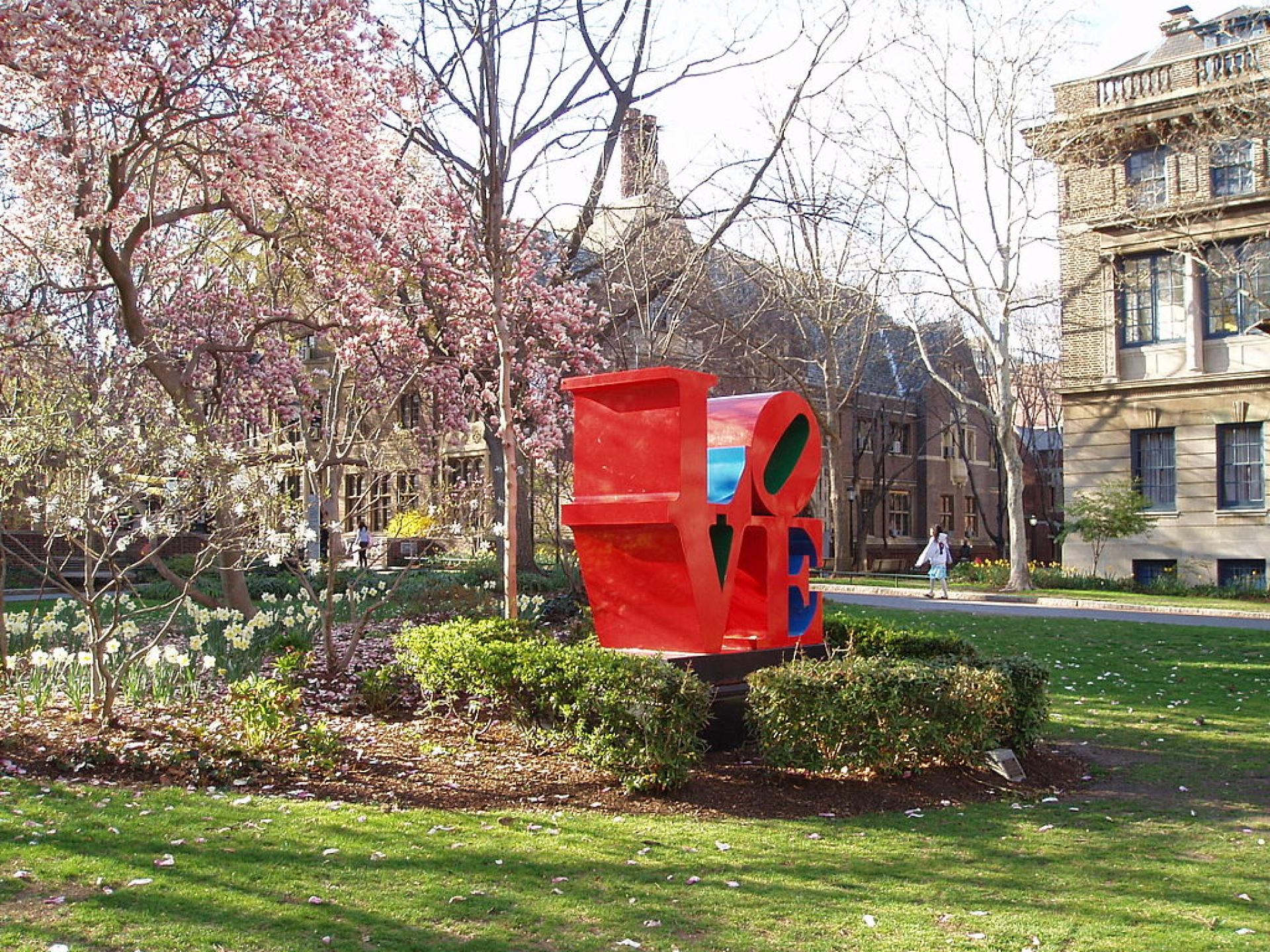By Nancy Zhu
We live in an era of increasing innovation and connectivity. It's said that we have the world is at our fingertips, with social media granting us the ability to link up quickly and easily with anyone across the globe. Yet the irony is that loneliness is a trusty companion in a modern and interconnected world.
Amidst COVID-19's backdrop of social distancing, loneliness is sweeping across our streets and boulevards. One of the harshest ironies of this pandemic is how we're forced to be apart at a time when we crave community and fellowship the most. Sheltered in our homes alone or with family, we are stripped of the normalcies of everyday life and instead find ourselves confronting the challenges of silence under isolation.

LOVE statue at the University of Pennsylvania; image via Wikimedia Commons
Loneliness, as defined in a medical dictionary, refers to “a sense of dejection because of being alone.” Something that most people have encountered at one point or another in their lives, it is a feeling of unwantedness and detachment from society. However, if sustained for extensive periods of time, loneliness can lead to other psychiatric disorders like depression, anxiety, schizophrenia and physical conditions like heart disease, stroke and cancer that can ultimately lead to death.
Although loneliness has only recently been talked about—as a side effect of the COVID-19 pandemic—it has always been part of the human condition. According to a study conducted by Cinga in 2018, nearly half of all Americans reported that they sometimes or always feel alone or left out, while findings from a 2018 study conducted by Hankook Research revealed that almost 90 per cent of single-person households are exposed to feelings of loneliness.
The date 31 December 2019 is one for the history books. On that fateful day, the first reported cases of the novel coronavirus made international news headlines. Alone, China faced the challenges of containing and treating the virus while the world observed nervously. Lockdowns were immediately enforced, leaving thousands in Wuhan, China quarantined in the confines their own homes with only loneliness to accompany them.
Within a matter of months, COVID-19 had crossed most national borders of the world, and before I knew it, loneliness had reached the doorstep of this 19 year old college student.
![]()
Packed, I left the social sphere of campus for an isolated journey back to my apartment located 14 floors above the concrete jungle of Philadelphia, PA. Left to my own devices, I quickly became a homebody, cooking, cleaning, and spending an outrageous time being a couch potato. Thankfully I was soon joined by my siblings, and enjoyed a level of normalcy living and interacting with them daily.
Even so, feelings of loneliness were constant. I felt disconnected from the friends I interacted with on a daily basis on campus, and robbed of opportunities for their companionship. To cope, I immersed myself in a seemingly endless cycle of sleeping, eating and screen time. I also substituted all physical interactions with virtual ones.
And here's what I discovered.
Our technocentric world has created alternatives to physical interaction, including RPG games and robots that capitalise on the social values humans evolutionarily seek from social interactions. Games like Animal Crossing allow players to gain status, acceptance and collaborations with other players. Likewise, artificially intelligent robots are easy companions that emulate feelings of acceptance.
However, these could never replace the benefits of physical contact.
Netflix, FaceTime or Zoom calls are not an equal substitute for face-to-face conversations. The in-person presence of others is a raw environment where there are no barriers or edits, allowing vulnerability and non-verbal cues to aid in the formation of a relationship. This is why I am grateful to have my siblings with me in the same apartment—the pandemic has taught us to cherish each other on a deeper level.

View of the empty highway from Nancy's apartment window; image courtesy of the author.
On that note, I leave you with my seven tried-and-true loneliness-busting hacks. These have proven useful in my situation, and I hope they offer you some temporary reprieve from loneliness.
#1: Spend at least 15 minutes having a digital conversation with a friend or interacting in-person (with precautions!) with a loved one.
![]()
#2: Hand-write a message to someone you haven't connected with in awhile.
![]()
#3: Find a way to serve others. This could mean delivering food to the needy or sewing face masks for donation.
![]()
#4: Give yourself sufficient downtime to relax and unwind.
![]()
#5: Create a vision board to keep track of your goals and aspirations.
![]()
#6: Meditate or get some exercise.
![]()
#7: Cook and share a meal.
![]()
All images via rawpixel unless otherwise stated.
|
Nancy Zhu is a rising sophomore at the University of Pennsylvania, studying business and policy. In her free time, she loves exploring local cafes, painting, hiking and coding. On campus, Nancy works with publications including The Daily Pennsylvanian (newspaper), WAX (business magazine) and UnEarthed (children’s magazine). She can be reached at nancyzhu@wharton.upenn.edu |








Comments